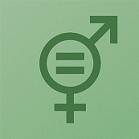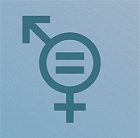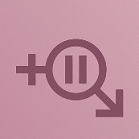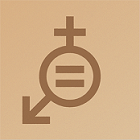 There is a trove of online resources for people interested in educating themselves about issues surrounding equity and diversity (in gender and beyond), references to sociological studies on the manifestations of discrimination and bias and testimonies from victims of discriminatory behaviours. Here we provide a short compilation of links relevant to astronomy that we encourage you to peruse.
There is a trove of online resources for people interested in educating themselves about issues surrounding equity and diversity (in gender and beyond), references to sociological studies on the manifestations of discrimination and bias and testimonies from victims of discriminatory behaviours. Here we provide a short compilation of links relevant to astronomy that we encourage you to peruse.
- A reading list on decolonizing astronomy and science in general by Chanda Prescod-Weinstein: https://medium.com/@chanda/decolonising-science-reading-list-339fb773d51f
- An article in Physics Today on Diversity in Physics by Ann Nelson: http://physicstoday.scitation.org/doi/10.1063/PT.3.3536
- AstroBetter's wiki page on diversity and reading list: http://www.astrobetter.com/wiki/tiki-index.php?page=Diversity
- A basic reading list on racism and privilege: https://theangryblackwoman.wordpress.com/required-reading/
- A blog by astronomer John A. Johnson on (among other things) discrimination and racism in astronomy: http://mahalonottrash.blogspot.co.uk/
- A compilation of blogs written by women astronomers, collected for the International Year of Astronomy: https://www.wisecampaign.org.uk/about-us/wise-projects/past-projects/women-in-astronomy
 Below are some Facebook groups that are of relevance and provide safe spaces for astronomers who identify as members of minoritized groups. For most of them being a professional astronomer and adhering to a specific code of conduct is required to become a member. These groups often provide lists for further reading and many of their members are invaluable resources when it comes to self-education on matters of equity and diversity.
Below are some Facebook groups that are of relevance and provide safe spaces for astronomers who identify as members of minoritized groups. For most of them being a professional astronomer and adhering to a specific code of conduct is required to become a member. These groups often provide lists for further reading and many of their members are invaluable resources when it comes to self-education on matters of equity and diversity.
- A Facebook group "Equity & Inclusion in Physics & Astronomy": https://www.facebook.com/groups/astro.physics.women/
- A Facebook group "LGBTIQ Physicists, Astrophysicists & Astronomers & Allies": https://www.facebook.com/groups/89586472053/
- A Facebook group "AWM: Astronomer, Woman, Mom": https://www.facebook.com/groups/722501354446573/
 National and international astronomical societies are gradually realizing the importance of performing important demographic surveys to quantify problems such as discrimination, racism and/or sexism among their members but also of dedicating resources and effort to protect the weakest and most marginalized among their membership. Here are some relevant resources:
National and international astronomical societies are gradually realizing the importance of performing important demographic surveys to quantify problems such as discrimination, racism and/or sexism among their members but also of dedicating resources and effort to protect the weakest and most marginalized among their membership. Here are some relevant resources:
- International Astronomical Union working group on Equity and Inclusion: http://sion.frm.utn.edu.ar/iau-inclusion/
- International Astronomical Union executive committee working group on Women: https://www.iau.org/science/scientific_bodies/workinggroups/womeninastronomy/
- American Astronomical Society Committee on Sexual-Orientation and Gender minorities in astronomy: https://sgma.aas.org/
- American Astronomical Society Committee on the Status of Women in Astronomy: https://cswa.aas.org/
- Astronomical Society of Australia Inclusion, Diversity and Equity in Astronomy Chapter: https://https://asa-idea.org/
- Commission of Women and Astronomy of the Spanish Society of Astronomy (in Spanish): http://www.sea-astronomia.es/drupal/mujer
- Women's Network of the German Astronomical Society (in German): http://www.astro.rug.nl/~kamp/Frauen_Netzwerk.html
- Working Group for Gender Equity of the Astronomical Society of India: http://www.ncra.tifr.res.in:8081/~sushan/wasi/index.html
 Further national and international resources can be found online on the status of women in astronomy. Few such resources exist for Asia and Africa, though the efforts of individual (typically women) scientists are invaluable in motivating discussion and engagement from the larger local community. It is encouraging, however, that some research institutions with global reach (such as the European Southern Observatory and the Sloan Digital Sky Survey collaboration) are reviewing their own practices.
Further national and international resources can be found online on the status of women in astronomy. Few such resources exist for Asia and Africa, though the efforts of individual (typically women) scientists are invaluable in motivating discussion and engagement from the larger local community. It is encouraging, however, that some research institutions with global reach (such as the European Southern Observatory and the Sloan Digital Sky Survey collaboration) are reviewing their own practices.
- Summary of a 2014 survey conducted by the Royal Astronomical Society on its membership: https://www.ras.org.uk/images/stories/press/people/1505.08051.pdf
- Work-Life Support and Diversity Office of the Japanese Aerospace Exploration Agency (in Japanese and English): http://stage.tksc.jaxa.jp/geoffice/carrier/index.html
- A presentation by Hyesung Kang on the status of women astronomers in South Korea: https://tinyurl.com/y97s8t3b
- A presentation by Xiangqun Cui on Women in Astronomy in China: http://astronomy.swin.edu.au/wam/talks/WAM_BeijingGA2012_Cui.pdf
- An account of Women in Astronomy in Italy by Francesca Matteucci: https://arxiv.org/ftp/arxiv/papers/1402/1402.1952.pdf
- Status of Women at European Southern Observatory: https://www.eso.org/sci/publications/messenger/archive/no.128-jun07/messenger-no128-67-71.pdf
- Demographics of the Sloan Digital Sky Survey: https://arxiv.org/abs/1505.06199
Nature Research journals have discussed the status of women in science and in astronomy specifically. Here are some examples:
- [Nature] Science is failing women: http://blogs.nature.com/naturejobs/2017/03/20/women-arent-failing-at-science-science-is-failing-women/
- [Nature] Women in physics: http://www.nature.com/news/women-in-physics-face-big-hurdles-still-1.20349?WT.feed_name=subjects_physics
- [Nature] Women Scientists in Japan: https://www.nature.com/nature/journal/v410/n6827/full/410404a0.html
- [Nature Geoscience] Gender balance in geosciences: http://www.nature.com/ngeo/journal/v1/n2/full/ngeo122.html
- [Nature Geoscience] Diversity in geosciences: http://www.nature.com/ngeo/journal/v9/n11/full/ngeo2836.html
- [Nature Physics] Under-representation of women in physics: http://www.nature.com/nphys/journal/v3/n6/full/nphys641.html
- [Nature Materials] Unconscious bias and gender equity in science: http://www.nature.com/nmat/journal/v13/n5/full/nmat3975.html

